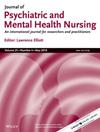A Mixed-Methods Study to Evaluate Depression and Anxiety Among Undergraduate Nursing Students
Abstract
Introduction
As the backbone of future healthcare delivery, the mental health of undergraduate nursing students can have a direct impact on patients' perceptions of health and the quality of their healthcare learning. However, there has been little qualitative research on the factors influencing the mental health of undergraduate nursing students.
Aim
This study investigated the current status and factors influencing depression and anxiety in undergraduate nursing students.
Methods
Questionnaires were administered to third-year nursing students at a medical college university using the Self-Assessment Scale for Anxiety (SAS) and the Self-Depression Scale (SDS). The students who suffered from anxiety or depression were selected for qualitative interviews and the results of the interviews were analysed by using the seven-step Koretz analysis.
Results
(1) SAS and SDS scores of undergraduate nursing students were higher than the national average. (2) The qualitative interviews revealed that five themes, including childhood experience, body image, interpersonal relationships, professional identity and career planning, influenced mental health.
Discussion
Undergraduate nursing students exhibited a high prevalence of anxiety and depression. The colleges should establish a proactive educational model centred on teaching quality, professional identity, career planning and mental health.
Implication for Practice
This study found that the mental health of undergraduate nursing students was influenced by a variety of factors, which require diverse and constant interventions. School, family and social resources should collaborate to develop a systematic approach for better mental health education in undergraduate nursing students.

 求助内容:
求助内容: 应助结果提醒方式:
应助结果提醒方式:


